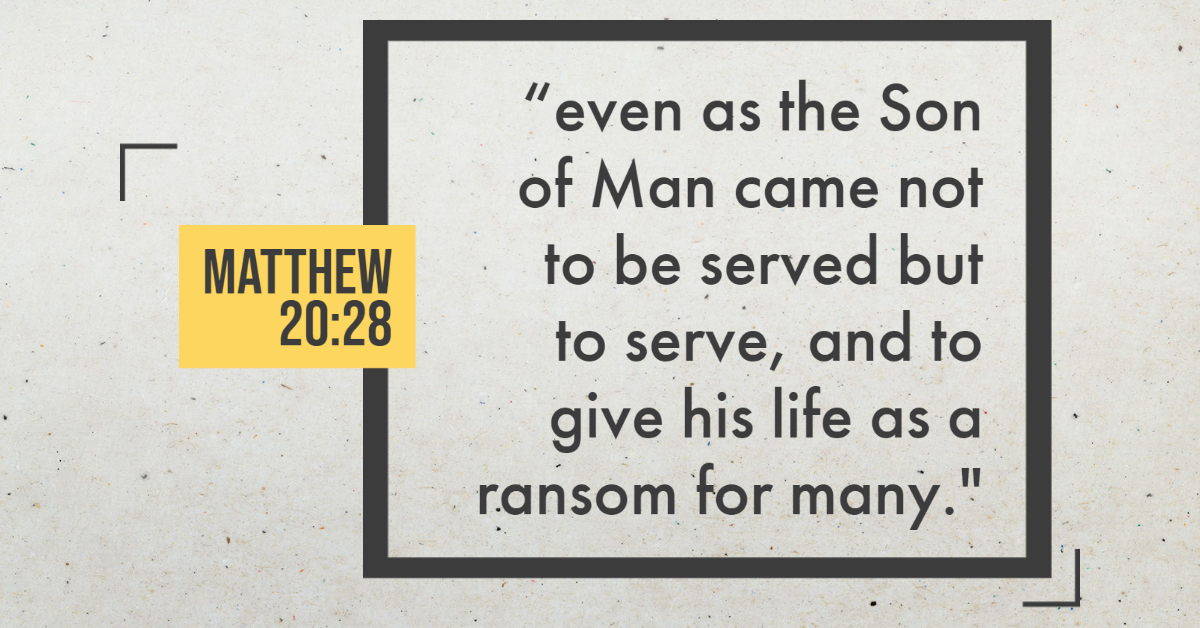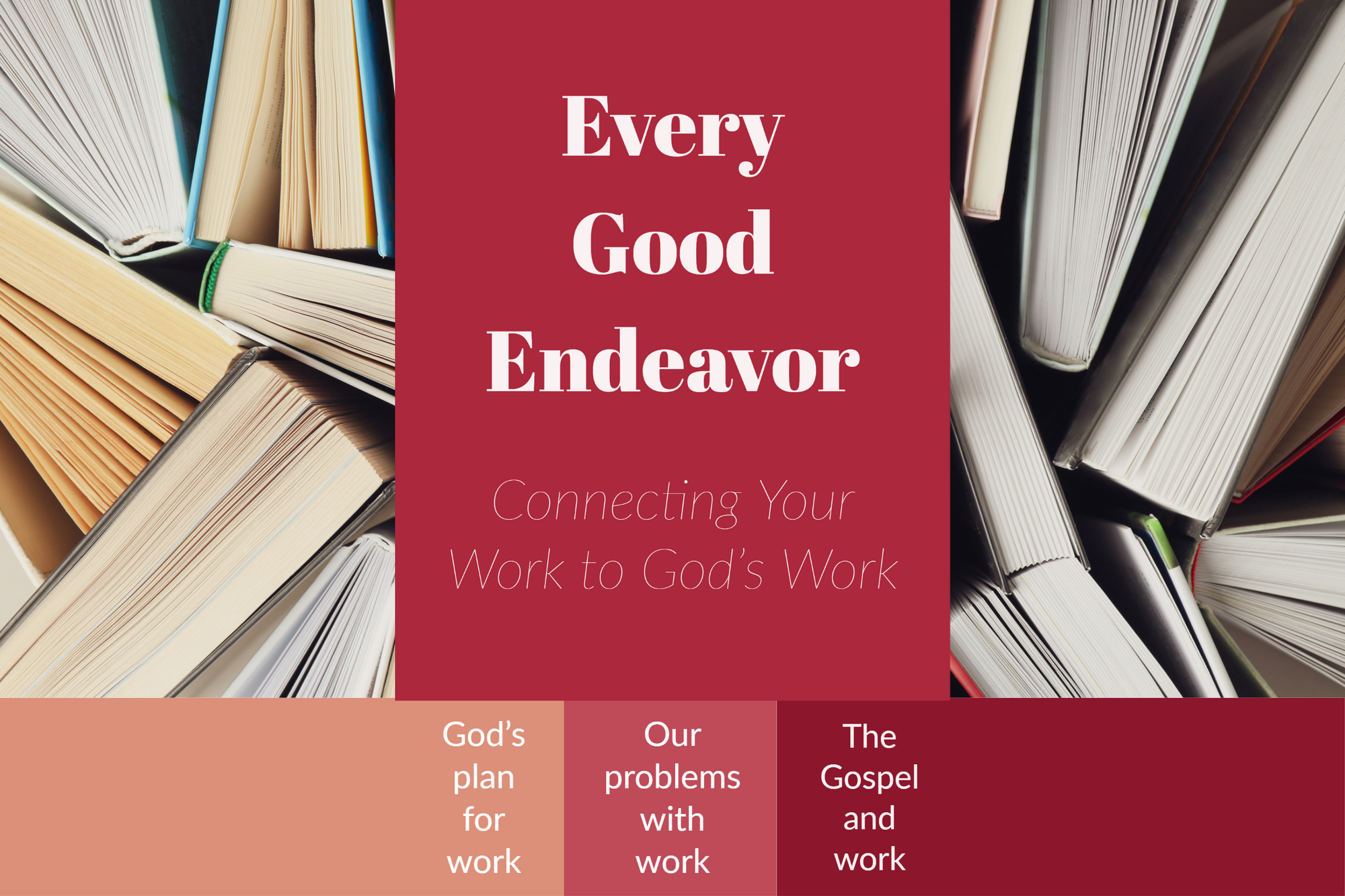[Note: I'm wanting to cover the next 3 chapters of Matthew which focus on the church community. I will only be focusing on small sections of each chapter; however, I encourage you to read through the entirety of Matthew 18-20 on your own because it is all valuable!]
When you make the decision to become a follower of Christ, there are many shifts in your mindset and actions. Matthew 18 focuses on the different characteristics of the Christian community, beginning with changing our thoughts on what makes someone "great."
According to the world, greatness tends to be measured by human endeavor, achievements, job status, etc.; however, this is not how God measures greatness. Instead, we are to have "humility like a child." Children understand they are not self-sufficient. They need help, direction, and resources from their parents. We need this same humility – we need to understand our need for God instead of relying on ourselves.
A humble person is also a forgiving person. We're going to read the Parable of the Unforgiving Servant for more on forgiveness.
For me personally, this is a challenging parable to read. There are definitely some people in my life that have wronged me that I haven't forgiven, or claimed to “forgive” but haven’t actually fully forgiven. This is how we should be looking at forgiveness – we need to forgive others because God first forgave us. When you're struggling to forgive someone, think of this parable and the fact that Jesus paid for all of our sins. He had mercy on us; therefore, we should have mercy on those around us and forgive them.
Before you can truly forgive someone, you need to understand what forgiveness is and is not. My church recently did a sermon series on being offended and talked specifically about this passage and forgiveness. Check out the full sermon here.
Forgiveness is NOT:
- Forgetting
- Saying that what happened is ok
- End of hurt
- Reestablishment of trust
- Reentering the situation
Forgiveness is:
- Releasing the right for revenge
- Set free
- Discharge or liberate
- Forfeit any right to hold captive
Before continuing further, ask yourself if there's someone in your life that you need to forgive. What are some action steps you can take towards forgiving that person?
Now we're going to jump to Matthew 19:16 (The Rich Young Man).
As a Christian, it can be easy to get caught up in just doing good deeds to get to heaven. The problem with this is our salvation isn't determined by the number of good deeds we do during our lifetime. In the above parable, the rich young man said he kept all the commandments Jesus mentioned: not murder, not commit adultery, not steal, not bear false witness, honor your father and mother, and love your neighbor as yourself. The problem came when Jesus told the man to sell all his possessions. The rich young man had a heart issue and valued his possessions over God.
His wealth became part of his identity and was an idol in his life – many people today also struggle with idolizing wealth. Jesus states that it is difficult for the wealthy to enter the kingdom of heaven. Jesus isn't saying that being wealthy is a bad thing; however, wealth can lead people to believe they are self-sufficient. It can be easy to forget your need for God when you seemingly provide for yourself (but in reality, God is the one providing for you).
What did Jesus mean when he said, "it is easier for a camel to go through the eye of a needle than for a rich person to enter the kingdom of God"? A camel could never fit through the eye of a needle. In the same way, a rich person (or any person) cannot enter the kingdom of heaven on their own, it's through the grace of God that people are saved. As followers of Christ, we need to acknowledge our need for Him and be willing to give up EVERYTHING we have to follow God. What is something that you need to give up in your life to become completely sufficient on God?
The final large passage we're going to look at this month is in Matthew 20, Laborers in the Vineyard:
Within this passage we see both bitterness and generosity. The first laborers were upset at the end of the day when they received the same payment as the laborers who came later in the day – even though they received the payment they agreed with at the beginning of the day. Why were the first laborers bitter about the master being generous towards others? Have there been times in your life when you have done more than another person, but you received the same reward/payment? Were you bitter in that situation?
This same scenario can be applied to our lives as Christians. In response to God’s amazing grace, we should be focused on serving with a heart of gratitude, not comparing ourselves to others. No one deserves the generosity God has shown us; therefore, we shouldn’t be bitter when it appears that someone else is getting a “larger” reward for seemingly less work. If you struggle with bitterness, I encourage you to take some time to think about how to shift your attitude. What are some of the situations where you’ve been bitter?
I’m going to wrap up this blog by going back to humility (talked about in chapter 18). Jesus is the ultimate example of humility.

Jesus has the power and authority over everyone, yet he continually served those lower than him and sacrificed His life for us. He didn’t use his power against others. How can you be a humble servant in your life? If you’re in a leadership role in any area of your life, how can you be more like Jesus in that role?
Humility, forgiveness, and bitterness were three big things discussed this month. Each person might struggle with one more than another. As we go through this month, take some time to answer the self-reflection questions I have throughout the blog. Let’s work together to become more like Jesus and shine His light in our communities!
Cornerstone Impact Update
There isn’t a whole lot to update on for our BRI partners this month. See below for two Eventide highlights:
Eventide’s vision is “a world where medical innovation is encouraged, where patient need is met with access, and value is justly rewarded.” Click here to learn more about their healthcare initiative.
Eventide doesn’t just care about investment performance, they also care about making the world better. This is their goal with their Business 360 process. Learn more about it here.
This year, I started writing 2 Cornerstone-based blogs a month – the first Wednesday of the month being the Bible study and halfway through the month being focused more on an aspect of Biblically Responsible Investing. Check out this first article I wrote which includes a summary of the 3 BRI mandates: avoid, embrace, engage:

Don't forget to subscribe to the blog, so you don't miss out on these updates. You can go back and look at all the Cornerstone blogs here.
Your faith and the workplace

For the last month, we've been going through part 1 of Timothy Keller's book, Every Good Endeavor: Connecting Your Work to God's Work. We're almost done with part 1, but it doesn't mean it's too late to follow along!
If you're a Christian in the workforce, this study is for you. Every Saturday morning, we'll be posting on our social media pages (Facebook, LinkedIn, and Instagram) a short discussion on the Timothy Keller book, "Every Good Endeavor: Connecting Your Work to God's Work". You don't have to have a job in ministry to glorify God at your job and make an impact for His kingdom!
I encourage you to purchase the book on Amazon and join the discussion on one of the above social media platforms (there might even be some giveaways throughout the study)! Throughout this study, we're going to be looking at the biblical answers to the following questions:
- Why do you want to work? (Why do we need to work in order to lead a fulfilled life?)
- Why is it so hard to work? (Why is it so often fruitless, pointless, and difficult?)
- How can we overcome the difficulties and find satisfaction in our work through the gospel?
Let me know if you have any questions.
Have you ordered one of our FREE Cornerstone shirts?
"Love must be sincere. Hate what is evil; cling to what is good." - Romans 12:9

We want to continue spreading Biblical messaging to those around us. One way we do this is through our Cornerstone t-shirts. Want a free shirt? We have 3 different designs (limited sizes available). Our newest design is the one pictured above in charcoal grey! Fill out the form below and we'll send one to you.





